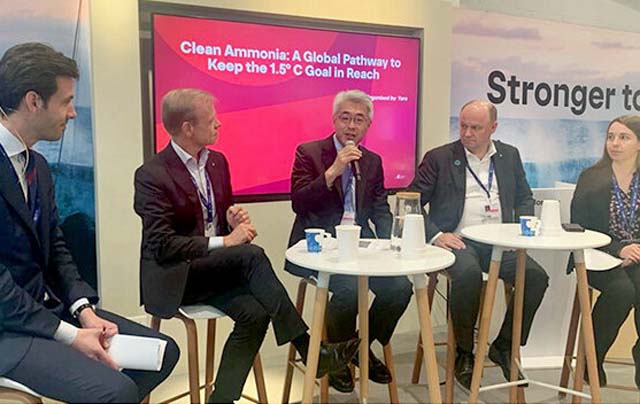Mitsui OSK Lines (MOL) and A.P. Moller-Maersk have issued a joint statement at COP 28 on the decarbonisation of the shipping industry.
The statement looks at bridging the price gap between clean alternative fuels and fossil fuels, which both companies regard as key to decarbonising the shipping industry. It is estimated that the cost of converting renewable energy into a form that can be used as fuel on ships, is three to four times higher than conventional fossil fuels. With fuel costs accounting for some 30%-50% of total ship operating costs, this price differetial is seen as a barrier to the decarbonisation of the shipping industry.
There is no singular zero-emission fuel alternative that can satisfy the volume of bunker fuel that is used today. The maritime industry is a melting pot of participants with an extreme diversity of attributes, and different solutions need to be nurtured with different partners for the decarbonisation of all types of ships. To decarbonise, the industry is dependent on scaling the production of zero-emission (green) fuels like ammonia, methanol, hydrogen and also battery operation to deploy and power zero-emission vessels. Support from within and outside the industry, including from governments, and workable policies are important to correct the price difference and promote the stable supply of various clean alternative fuels.
MOL President Takeshi Hashimoto said: “Multiple pathways are needed to decarbonise the shipping industry, which underpins various supply chains. I advocate for a phased investment approach, including: 1. immediate investment in LNG and methanol, which can be implemented right away, and 2. investment in fuels such as ammonia and hydrogen, which require technological development.
The joint statement has been published by the World Economic Forum and can be viewed here.



